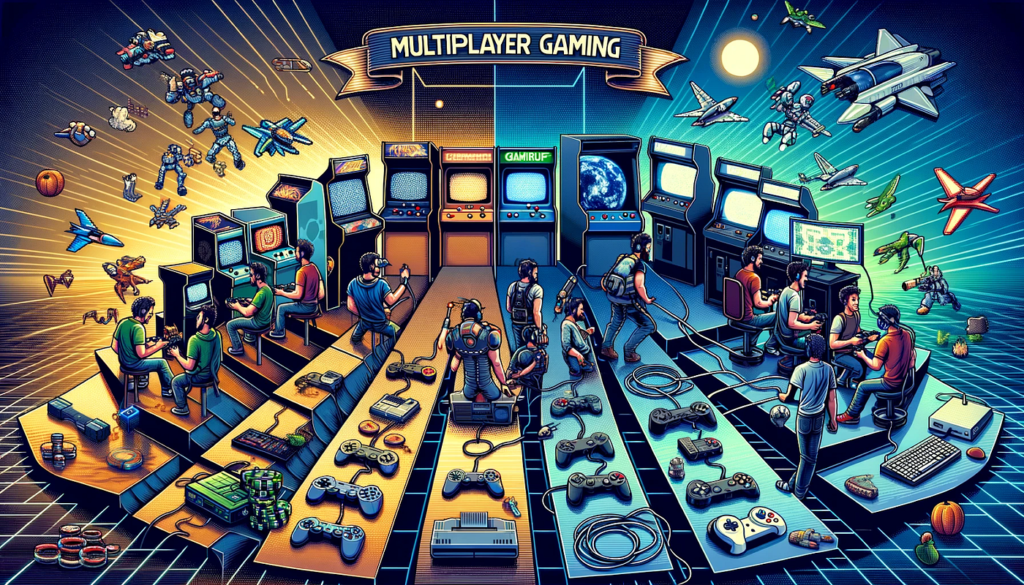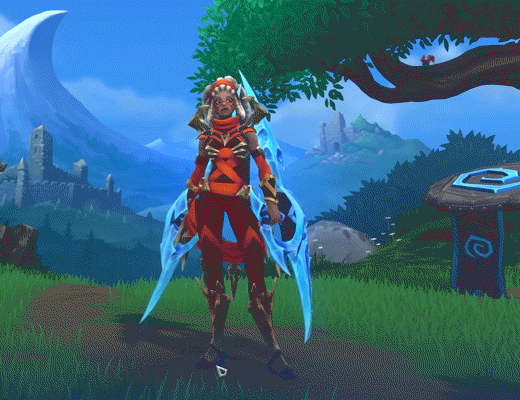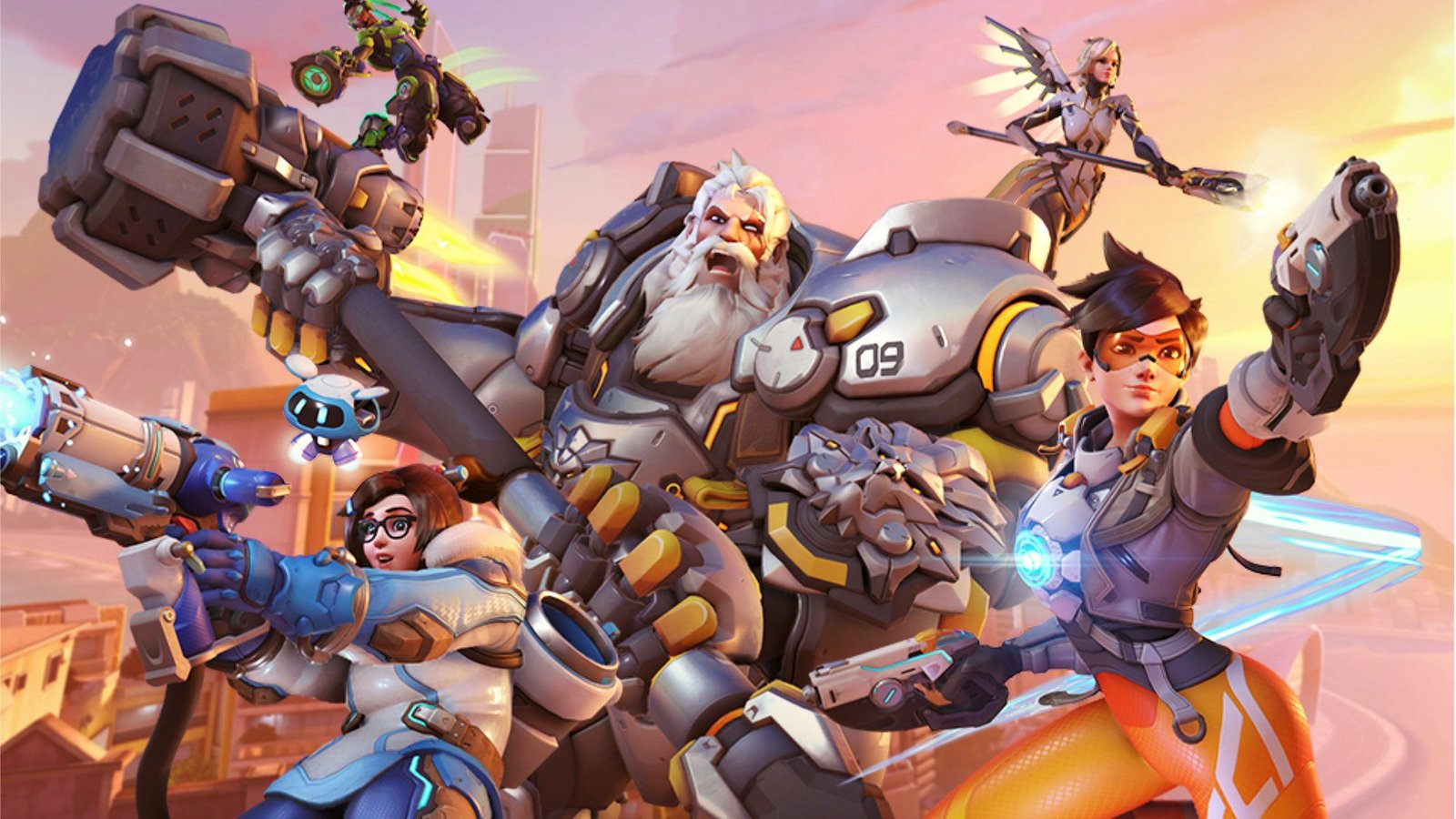Introduction
The gaming industry has undergone a massive transformation over the years, evolving from single-player experiences to immersive multiplayer online gaming. With the advancement of technology, multiplayer online gaming has become a dominant force, reshaping the industry in multiple ways. Multiplayer Online Gaming has revolutionized how games are developed, marketed, and played while also influencing social interactions, competitive gaming, and monetization strategies. This article explores how multiplayer online gaming is changing the industry, the driving forces behind this transformation, and what the future holds.
Key Takeaways
- Multiplayer online gaming has led to the rise of esports and competitive gaming.
- Game monetization now focuses on microtransactions and in-game purchases.
- Social interaction in gaming has increased through online communities and live streaming.
- The future of multiplayer gaming includes AI, VR, cross-platform play, and cloud gaming.
- The industry has become more inclusive, diverse, and economically impactful.
The Evolution of Multiplayer Online Gaming

Multiplayer gaming has existed since the early days of video games, but the introduction of the internet has drastically changed the landscape. Games like DOOM (1993) and Quake (1996) introduced local multiplayer through LAN, but the real transformation came with the rise of MMORPGs (Massively Multiplayer Online Role-Playing Games) like World of Warcraft (2004). With high-speed internet becoming more accessible, online multiplayer gaming became a standard feature in most modern games.
Today, multiplayer online gaming spans various genres, including Battle Royale (e.g., Fortnite, PUBG), FPS (e.g., Call of Duty: Warzone), MOBA (e.g., League of Legends, Dota 2), and cooperative games (e.g., Among Us, Minecraft). The widespread availability of these games has led to several significant changes in the gaming industry.
The Major Impacts of Multiplayer Online Gaming on the Industry
1. The Rise of Esports and Competitive Gaming
Esports has become a multi-billion-dollar industry, with professional tournaments offering huge prize pools and attracting millions of viewers worldwide. Multiplayer games such as League of Legends, Counter-Strike: Global Offensive, and Dota 2 have established strong esports ecosystems.
Impact:
- Creation of professional gaming careers
- Growth of esports sponsorships and endorsements
- Development of esports leagues similar to traditional sports leagues
2. Game Monetization and Microtransactions
Traditional one-time purchases of games have been replaced by free-to-play models that rely on microtransactions, battle passes, and in-game purchases.
Impact:
- Increased revenue through cosmetic items and skins
- Continuous updates and seasonal content keep players engaged
- Expansion of game life cycles with regular monetization strategies
3. Social Connectivity and Online Communities
Multiplayer games have changed how people interact and socialize. Platforms like Discord, Twitch, and YouTube Gaming have enabled gamers to connect beyond just playing.
Impact:
- Formation of strong online communities
- Increased social interaction and friendships
- Growth of live streaming culture
4. Cloud Gaming and Cross-Platform Play
Cloud gaming services like Xbox Cloud Gaming, NVIDIA GeForce Now, and PlayStation Now allow players to access multiplayer games without high-end hardware.
Impact:
- Reduction of hardware dependency
- Accessibility for gamers across different devices
- Expansion of cross-platform multiplayer experiences
5. AI and Procedural Generation in Multiplayer Games
AI-powered matchmaking systems and procedural generation techniques have enhanced gaming experiences, making matches fairer and gameplay more dynamic.
Impact:
- Balanced matchmaking in ranked multiplayer games
- Reduction of toxicity through AI-driven moderation
- Smarter non-player characters (NPCs) and enemy AI
6. Diversity and Inclusivity in Gaming
Multiplayer gaming has encouraged inclusivity, breaking barriers for gamers worldwide. Representation of different cultures, genders, and accessibility features has improved in modern games.
Impact:
- More diverse character representation
- Accessibility options for differently-abled players
- Stronger enforcement of anti-harassment policies
7. Economic Growth and Job Creation
Multiplayer online gaming has created new job opportunities, not only for game developers but also for content creators, esports professionals, and streamers.
Impact:
- Rise in game development studios and publishers
- Growth of gaming-related career paths
- Expansion of digital economies within games (e.g., skins, NFTs, virtual real estate)
The Future of Online Multiplayer Gaming: Trends and Innovations

The online multiplayer gaming industry has witnessed unprecedented growth, revolutionizing entertainment, social interactions, and even economies. With the rapid evolution of technology, online multiplayer gaming continues to push boundaries, offering more immersive and dynamic experiences. From AI-driven enhancements to the integration of blockchain technology, the future of multiplayer gaming looks promising. In this article, we will explore key trends and innovations shaping the future of online multiplayer gaming.
1. Cloud Gaming and Streaming Services
Cloud gaming services are transforming the way gamers access and play multiplayer games. With platforms like Xbox Cloud Gaming, NVIDIA GeForce Now, and PlayStation Now, players can enjoy high-quality gaming without requiring expensive hardware.
Key Benefits:
- Hardware Independence: Gamers can play on any device without the need for high-end PCs or consoles.
- Instant Access: No downloads or installations required.
- Cross-Platform Gaming: Seamless gaming across different devices.
Cloud gaming is expected to become the norm as internet speeds improve and more companies invest in this technology.
2. Cross-Platform Play and Compatibility
Cross-platform multiplayer gaming has become a major trend, allowing players to connect regardless of their gaming device. Games like Fortnite, Call of Duty: Warzone, and Rocket League have successfully implemented cross-platform play, breaking barriers between console, PC, and mobile gamers.
Future Implications:
- Unified Gaming Ecosystem: Gamers can play with friends on different devices.
- Larger Player Bases: More matchmaking opportunities and reduced waiting times.
- Improved Competitive Gaming: Balanced skill-based matchmaking across platforms.
As cross-platform play becomes standard, developers will focus on optimizing controls and gameplay experiences for all devices.
3. AI-Driven Enhancements in Multiplayer Games
Artificial Intelligence (AI) is revolutionizing multiplayer gaming by enhancing player experiences, optimizing matchmaking, and detecting in-game behaviors. AI-driven solutions are improving various aspects of online gaming, including:
Key Applications:
- Smart Matchmaking: AI algorithms create balanced matches based on player skill levels.
- Cheating and Toxicity Prevention: AI monitors and detects cheaters and toxic behaviors in real-time.
- NPC and Bot Behavior: AI-powered NPCs enhance co-op and PvE (Player vs. Environment) experiences.
With continued AI advancements, online multiplayer games will become more immersive, fair, and engaging.
4. VR and AR Integration in Multiplayer Gaming
Virtual Reality (VR) and Augmented Reality (AR) are changing how players experience online multiplayer games. Games like VRChat, Rec Room, and Echo VR showcase the potential of VR in social multiplayer environments.
Future Prospects:
- Fully Immersive Worlds: Players can interact in 3D virtual spaces with realistic avatars.
- Augmented Reality (AR) Multiplayer: AR technology enables real-world multiplayer interactions through mobile devices and AR headsets.
- Haptic Feedback and Motion Tracking: Enhanced sensory experiences through VR gloves and suits.
As VR/AR hardware becomes more affordable, these technologies will redefine online multiplayer interactions.
5. The Rise of Blockchain and NFT Gaming
Blockchain technology is revolutionizing ownership and monetization in multiplayer gaming. With NFTs (Non-Fungible Tokens) and Play-to-Earn models, players can own, trade, and monetize in-game assets.
Key Advantages:
- True Ownership: Players can buy, sell, and trade in-game items as NFTs.
- Decentralized Economies: Games integrate cryptocurrencies for in-game purchases and rewards.
- Play-to-Earn Opportunities: Players earn real-world value by participating in the game economy.
While blockchain gaming faces challenges like regulation and scalability, it is a growing trend with massive potential.
6. Metaverse and Persistent Online Worlds
The concept of the Metaverse is reshaping multiplayer gaming by creating persistent, interconnected virtual worlds. Companies like Meta (Facebook), Epic Games, and Roblox are investing heavily in building Metaverse experiences.
Features of Metaverse Gaming:
- Persistent Online Worlds: Game worlds exist independently of player actions.
- Digital Avatars and Virtual Spaces: Players create custom avatars and socialize in digital environments.
- Interoperability: Virtual assets and currencies can be used across multiple games and platforms.
As Metaverse technology matures, multiplayer gaming will transition into fully interconnected digital universes.
7. Enhanced Game Physics and Realism
Next-gen game engines like Unreal Engine 5 and Unity are improving realism in multiplayer games. Enhanced physics engines enable:
- More Dynamic Environments: Realistic destruction and weather systems.
- Improved Character Animations: AI-driven animations for lifelike movements.
- Ray Tracing for Better Graphics: Real-time lighting and shadows enhance immersion.
As computing power increases, online multiplayer games will offer more lifelike experiences.
8. AI-Powered Voice and Chat Assistants
Voice recognition and AI-driven chatbots are transforming multiplayer communication. AI-powered assistants can:
- Translate Conversations in Real-Time: Breaking language barriers for international players.
- Enhance Team Communication: AI provides strategic suggestions during gameplay.
- Moderate In-Game Chat: AI detects and filters toxic or offensive messages.
With AI-driven communication, online multiplayer games will become more inclusive and player-friendly.
9. Improved Accessibility in Online Multiplayer Games
Game developers are prioritizing accessibility features, ensuring multiplayer gaming is inclusive for all players.
Key Accessibility Innovations:
- Customizable Controls: Adaptive controllers and remappable inputs.
- Subtitles and Audio Descriptions: Better support for hearing-impaired players.
- Colorblind Modes and UI Adjustments: Enhanced visibility options.
With a focus on inclusivity, online multiplayer games are becoming more welcoming to a diverse player base.
10. The Future of Multiplayer Esports
Esports is evolving with larger tournaments, better broadcasting technology, and increased mainstream recognition. The future of esports includes:
- Virtual Reality Esports (VRE): Competitive gaming in VR environments.
- AI-Enhanced Coaching: AI-driven analytics for player performance improvement.
- Global Esports Leagues: Expansion of esports to mainstream audiences and TV broadcasts.
Esports will continue to thrive, offering more career opportunities for competitive gamers.
Best multiplayer games :

Although gaming is traditionally about the stories you tell, the other half is about goading that competitive nature in each of us to be the very best. Yes, that’s right, we’re talking about multiplayer.
2016’s been a great year for competitive games, with titles like Overwatch and Rocket League dominating online conversations and overtaking entire weekends.
But there’s more too. We’ve rounded up our top 5 multiplayer games of the year – in no particular order – so you can prepare to dominate your foes.
1. Overwatch

Release date: Blizzard Entertainment
Available on: PS4, Xbox One and PC
Of course this list contains Overwatch. How could it not? No competitive game this year has held our attention more steadfastly than Blizzard’s team-based shooter.
Each of the game’s 23 classes is a joy to handle, and though the game currently only features four main game modes, the updates and extra content have come thick and fast.
Lucioball added Rocket League-esque soccer hilarity during the game’s Rio event, and Blizzard has completely replaced the game’s lacklustre Weekly Brawls with far more compelling arcade modes. The addition of new heroes Ana Amari and Sombra have given us even more reasons to come back too, with the promise of even more additions to the roster in 2017.
The same care has been taken with the game’s competitive mode, which has been carefully enhanced over the past six months to provide a smoother, fairer experience for all. We’ve had a blast with Overwatch in 2016, and can’t wait to see what’s in store for budding heroes next year.
2. Overcooked

Developer: Ghost Town Games
Available on: PS4, Xbox One and PC
Who would have thought that a game about making soup could be such a competitive success? Overcooked’s head-to-head mode is as delightful as its cooperative play. As teams of chefs struggle to create the most burgers, stew, salad, or whatever happens to be on the menu in the game’s ludicrous kitchens, the pressure (cooker) is always high.
What makes Overcooked so worthy of praise is simple design which offers complex player choice. The basic mechanics are simple. You’ll chop, you’ll boil, and you’ll serve, but there are a hundred ways to organise your labour. This one gets a Michelin Star from us.
3. Rocket League

Developer: Psyonix
Available on: PS4, Xbox One and PC
It’s been a great year for Rocket League. As if a game about nitro-fuelled cars playing football wasn’t exciting enough, the game has seen the consistent addition of new cars and arenas, as well as the deliciously hectic Rumble mode which added a slew of hilarious power ups to the arena, enlivening the experience once more.
The base game is fantastic, and the community-first approach of Psyonix has brought us back again and again.
4. Titanfall 2

Developer: Respawn Entertainment
Available on: PS4, Xbox One and PC
Battlefield 1, Infinite Warfare, Titanfall 2. 2016’s ‘Big Three’ all brought something unique to the table, but for us, Titanfall 2 is the clear winner. Respawn Entertainment knocked this one out of the park, crafting a sequel which built on the best elements of the original.
The pace of Titanfall 2’s multiplayer is wondrous, and the new Titans offer a tactical variety that keeps the experience fresh. Each map is carefully designed to allow each pilot, and their trusty mech, to shine in skirmishes which enjoy a refreshing combination of daring wall-runs and seamless transition between man and machine.
If you’re an FPS fanatic then it’s time to buy the game, buckle up, and brace for impact.
5. Battlerite

Developer: Stunlock Studios
Available on: PC
MOBAs aren’t for everyone. The process of farming creeps, slowly levelling, and jaunting across an expansive map over hour-long matches can lead to sighs and finger twiddling in some.
Battlerite’s innovation is to trim the fat and reduce the MOBA formula to its most exciting element: teamfights. The game’s 2 vs 2 and 3 vs 3 battles cut straight to the chase, providing a deep, competitive experience whilst asking for a shorter commitment of time.
Also Read : The Role Of Artificial Intelligence In Online Gaming
Conclusion
Multiplayer online gaming is redefining the gaming industry, influencing game development, monetization strategies, social interactions, and competitive gaming. The rise of esports, cloud gaming, and AI-driven advancements will continue to shape the industry’s future. As technology evolves, we can expect even more immersive and interconnected multiplayer experiences, pushing gaming into new frontiers.
Frequently Asked Questions (FAQs)
1. How has multiplayer online gaming affected traditional single-player games?
While multiplayer games dominate the industry, single-player games still thrive. Developers now integrate live-service elements into single-player titles for extended engagement.
2. Are multiplayer games more profitable than single-player games?
Yes, due to recurring revenue from microtransactions, multiplayer games generate more profit than traditional single-player games.
3. What are the risks associated with multiplayer gaming?
Risks include cyberbullying, online toxicity, gaming addiction, and exposure to inappropriate content. Parental controls and moderation tools help mitigate these risks.
4. How do multiplayer games promote teamwork and social skills?
Many multiplayer games require strategic planning and teamwork, improving communication, problem-solving, and leadership skills.
5. What is the future of multiplayer online gaming?
The future includes advancements in AI, VR/AR integration, blockchain-based gaming, and the rise of metaverse gaming experiences.
6. How do developers ensure fair play in online multiplayer games?
Developers use AI-driven anti-cheat systems, player behavior tracking, and manual moderation to maintain a fair gaming environment.
7. Can multiplayer gaming be a full-time career?
Yes, careers in esports, content creation, game development, and streaming make multiplayer gaming a viable profession.


